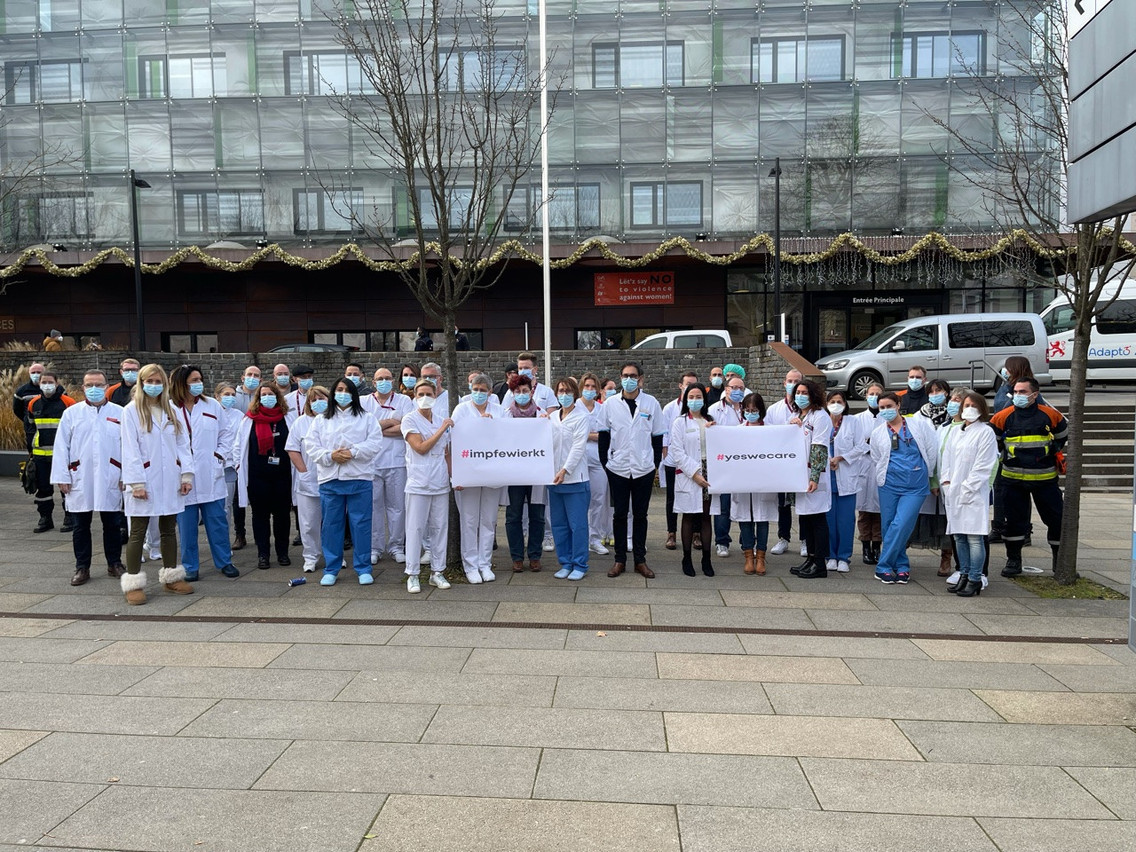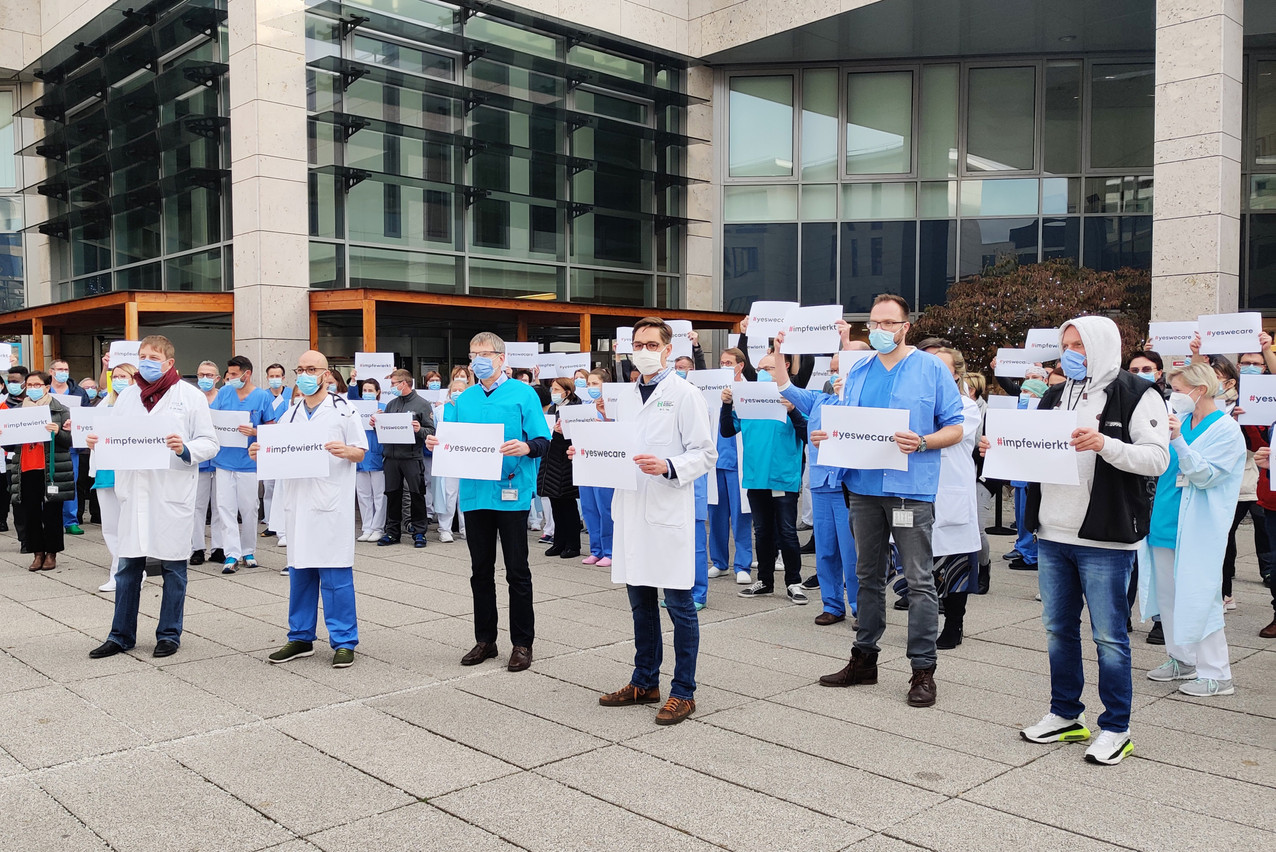There were about a hundred people in front of the Robert Schuman Hospital (HRS) to mark a minute of silence and, above all, to make the public aware of the current pandemic situation. The same scene was witnessed in front of the Centre hospitalier du Nord in Ettelbruck, and outside the Chem in Esch-sur-Alzette and in Dudelange.
The white coats mobilised throughout the country by observing . This reaction was prompted by increased worries among healthcare staff in Luxembourg who have been at the forefront of the country's efforts to deal with the pandemic for almost two years now.
Pandemic figures are soaring in Germany and other European countries, such as the Netherlands, Belgium, France and Austria, which recently went into lockdown.
In Luxembourg, the numbers are also climbing, and healthcare workers want to sound the alarm before it's too late. “The virus is still there. We can feel a certain weariness, but we must remain vigilant and take the necessary precautions because we find ourselves on a rising wave of the epidemic and there is a risk that we will hit the wall again at the end of the year,” said Cyril Thix, secretary of the medical council and anaesthetist.
To avoid the worst, to encourage the most hesitant. “We have a solution to this epidemic: vaccination. It is effective. It is the only way we have. Vaccination is safe. There is no reason not to get vaccinated,” said Thix, who does not hide the fatigue of his colleagues.
“Healthcare workers have completed their first marathon. And now we see that we are already about to start the next one. We need help. We need everyone's help. Have faith in us, who are the experts, who treat, who make medicine. Believe in the effectiveness and reality of the vaccine,” the anaesthetist said.
“For the past two years, the teams have been really tired, because they are over-solicited by the health crisis. As in other countries, there is a lack of staff,” said Dan Thoma, a nurse anaesthetist. “The figures show that the pandemic is getting worse. At the moment, in Luxembourg, intensive care is not yet saturated, but if that happens, as beds and staff will be taken over by covid-19 patients, we will be forced, due to lack of resources, to cancel some routine operations. That's what we don't want.”
The nurse anaesthetist also pointed out that the “vaccine reduces the risk of being in intensive care. But being vaccinated does not make you immune to the virus. You can also transmit it and get sick, but you greatly reduce the risk of ending up in intensive care. So you still have to be a little cautious.”
Speeding up on the third dose
The health staff also advocated for the introduction of the third dose. In addition to intensive care, covid-19 positive patients who are not in intensive care must still be isolated from other patients on any ward. This leads to logistical complications for hospitals.
“In intensive care units, you have a majority of non-vaccinated patients. With the third dose not yet injected into everyone, we have more and more people coming in who are vaccinated, but positive. So we can't compare them with patients in intensive care, because they are only positive. But they still have to be isolated in a room. In my department, I have never had so many positive patients, but who are not hospitalised for covid. This creates logistical problems because the patient has to be isolated,” said Jean-Marc Cloos, medical director of the psychiatry department.
“The third booster is more than necessary for everyone. Those who are not yet vaccinated are really people who are playing with their lives because they risk developing serious forms and being admitted to intensive care. The vaccine protects. You can be positive and still be vaccinated. But if you are vaccinated, the symptoms are still minor. The problem in intensive care is that the people who arrive now are much more difficult to treat, because they are people who voluntarily did not get vaccinated. So they are sceptical about the vaccine. They want to be treated with vitamins only. They are therefore difficult to manage for the intensive care teams who are already exhausted from the three previous waves,” said Cloos.

Healthcare workers in front of Chem. (Photo: Chem)
This story was first published in French on . It has been translated and edited for Delano.
